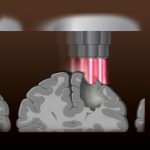A recent survey of more than 1,000 American adults found that 35 percent skipped previously scheduled cancer screening appointments during the pandemic. A USA Today article on the survey quotes MSK’s Dr. Jeffrey Drebin, who says that pushing back screening has a domino effect, as it could also delay life-saving treatment.
In the New York Daily News, MSK’s Dr. Lisa DeAngelis emphasizes the importance of cancer care, and how early detection saves lives. She urges New Yorkers to schedule mammograms, colonoscopies, skin checks, and other screenings now, while New York City’s COVID numbers are low and stable.
